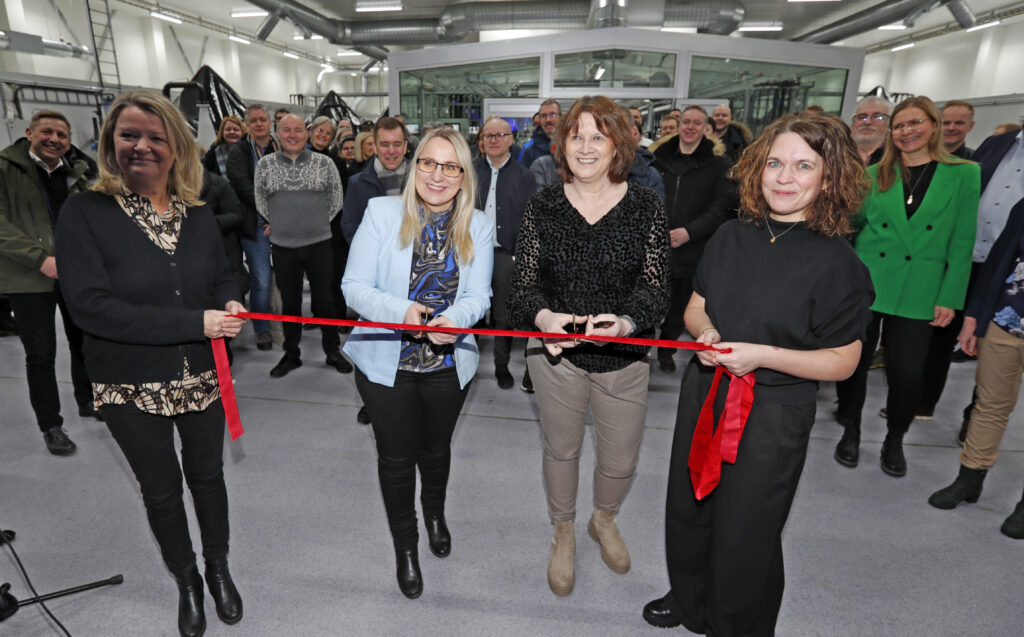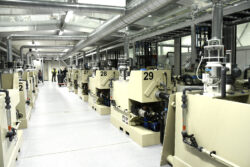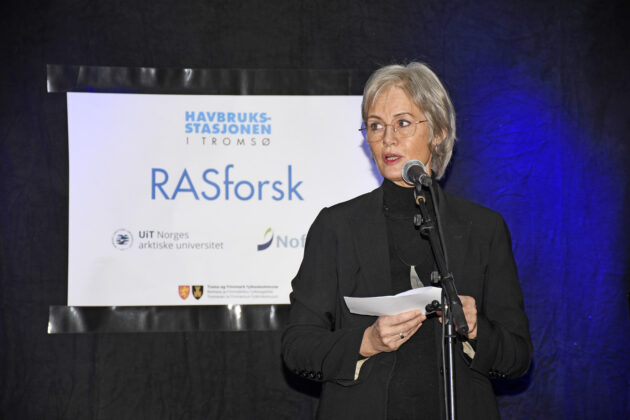
News
Industry update
Research
Nofima teams with Norwegian university for $8.9M RAS research facility
January 13, 2023 By Nestor Arellano
 Opening of RASforsk. From the left, Grete Sollesnes Winther (chairman), Karin Eriksen (Troms and Finnmark county), Kristina S. Hansen (State Secretary for the Minister of Fisheries and Ocean Policy) and Kathrine Tveiterås (The Arctic University of Norway). (Photo: Rune Stoltz Bertinussen, Nofima)
Opening of RASforsk. From the left, Grete Sollesnes Winther (chairman), Karin Eriksen (Troms and Finnmark county), Kristina S. Hansen (State Secretary for the Minister of Fisheries and Ocean Policy) and Kathrine Tveiterås (The Arctic University of Norway). (Photo: Rune Stoltz Bertinussen, Nofima) What is being billed as the most advanced research centre for recirculating aquaculture system (RAS) fish farming recently opened is doors in Tromsø, Norway.

Eighteen one-cubic-metre tanks and six nine-cubic-metre tanks, all with separate recirculation systems (Photo: Rune Stoltz Bertinussen, Nofima)
The facility, called RASforsk, represents an investment of almost NOK 90 million (US$8.9 million), is jointly owned by Nofima and UiT The Arctic University of Norway. Troms and Finnmark county municipality have also contributed NOK 13.5 million to the venture.
“A soon as the facility is up and running, the aquaculture industry in the north will have an education and research facility where they can learn about RAS. It is one of the world’s most advanced research facilities for onshore fish farming,” a press release from Nofima said.
The newly constructed hall 1,350 square-metre educational and research facility will provide training opportunities for young people, create jobs in rural areas and provide the aquaculture industry the greater knowledge on onshore fish farming it needs.
RASforsk is ready for use. The facility has 18 one cubic metre tanks and six nine cubic metre tanks, all with separate recirculation systems. Because this is a new build, the facility is very flexible, and the recirculation systems and tanks can be interconnected as needed. RASforsk’s Aquaculture Research Station can take in both fresh water and sea water as needed. To avoid high energy consumption, almost 100 percent of the water is recycled.
“Training candidates in an active research community is an unconditional benefit both for knowledge and industry development,” said Katrine Tveiterås, pro-rector at UiT. “The industry needs more minds who know RAS, and there we have a particularly important task to train candidates who can contribute to healthy fish, better fish health and sustainable production. We are pleased that RASforsk gets better facilities for this.”
“Fish welfare is very important, and technology must thus be adapted to the fish’s requirement for good water quality. This means that temperature, salinity, oxygen, carbon dioxide, ammonia, pH and biofilter activity must be closely monitored. This can be demanding, and education and research are important for the aquaculture industry to develop its use of RAS technology,” said Bente Torstensen, division director at Nofima.

Rita Sæther is the CEO of the Aquaculture Research Station in Tromsø. (Photo: Rune Stoltz Bertinussen, Nofima)
Print this page